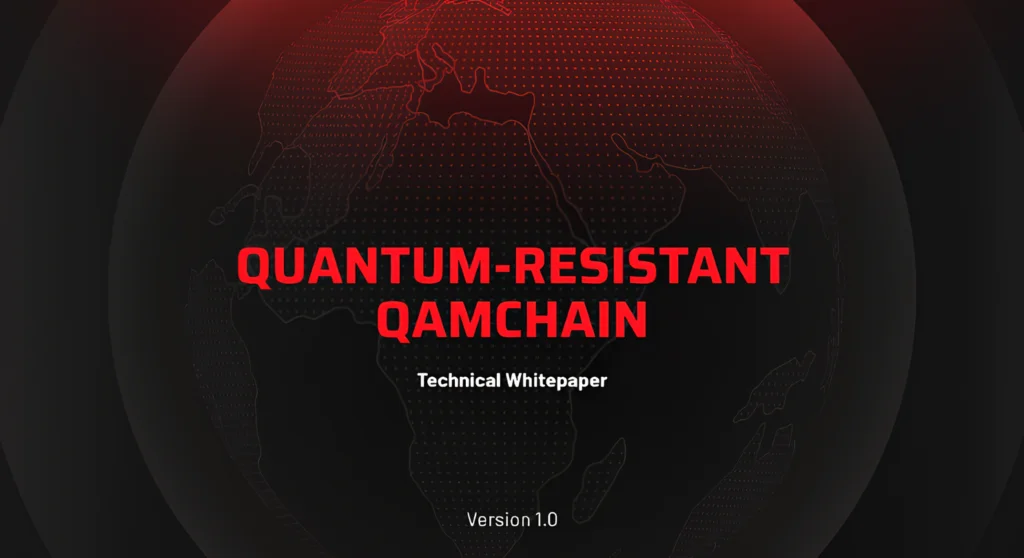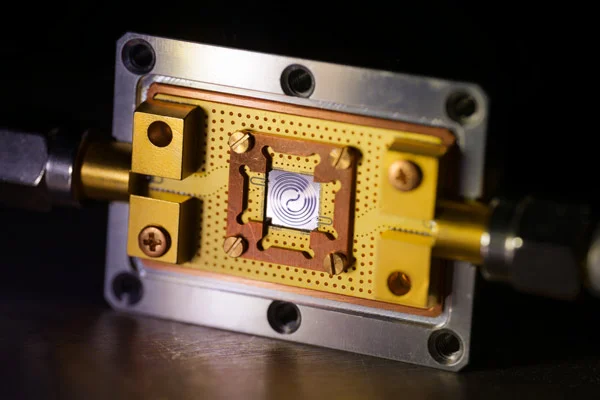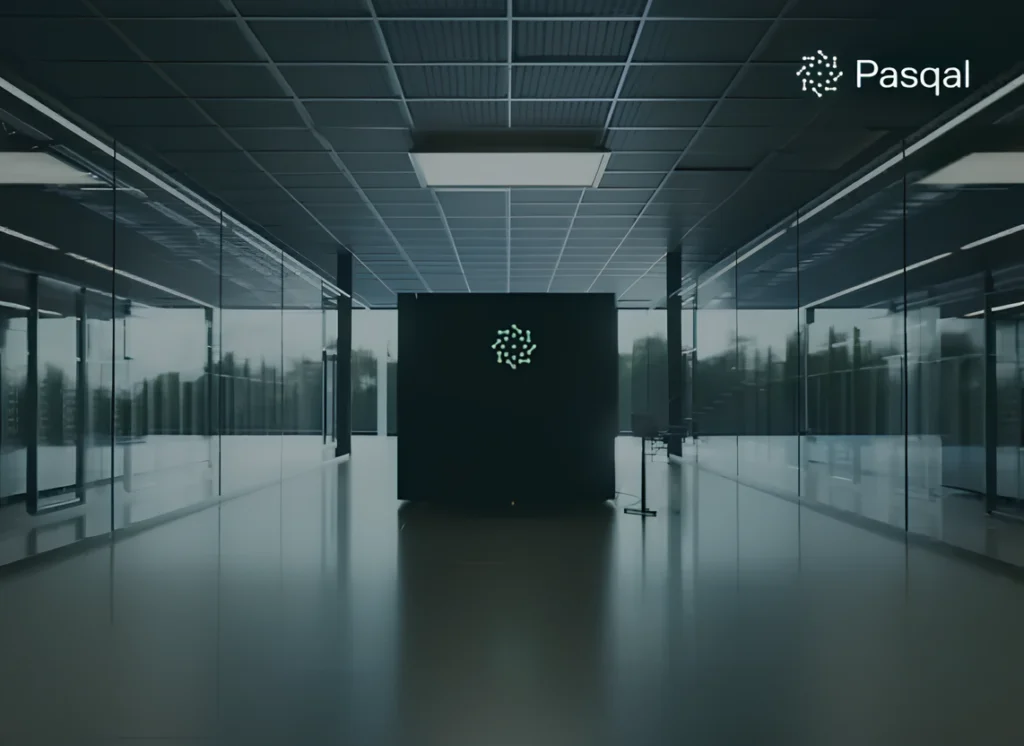Insider Brief
- Rigetti Computing posted a third-quarter net loss of $14.8 million in its 3Q 2024 report but outlined an ambitious roadmap, including the launch of scalable multi-chip quantum systems, aiming for significant fidelity improvements and expanded qubit capacity by 2025.
- Rigetti’s 2025 roadmap includes a 36-qubit system built with interconnected 9-qubit chips, targeting a high 99.5% two-qubit fidelity, alongside plans for a future 336-qubit Lyra™ system.
- The company’s Alternating-Bias Assisted Annealing (ABAA) technique, introduced in August, fine-tunes qubit frequencies, reducing defects and supporting precise, high-fidelity quantum gate operations.
Rigetti Computing Inc. (Nasdaq: RGTI), a developer in the emerging field of quantum-classical computing, posted its third-quarter 2024 financial results in a company statement alongside several updates to its technology roadmap aimed at scaling its quantum systems for greater computational power and reliability.
Despite a significant quarterly loss, Rigetti outlined ambitious plans for expanding qubit capacity and enhancing system fidelity. The company reports that it is seeking to position itself as a leader in quantum hardware through multi-chip designs, novel fabrication techniques and strategic partnerships with international quantum research centers.
First, the financials: For the three-month period ending September 30, Rigetti reported total revenues of $2.4 million, marking a modest increase. However, operating expenses surged to $18.6 million, leading to an operating loss of $17.3 million. Ultimately, the company’s net loss stood at $14.8 million.

Some other points on the financial statement indicate how Rigetti is handling the navigation through the capital intensive work of quantum computing development.
For example, Rigetti’s total current assets fell slightly from $107.7 million to $103.9 million, driven in part by a reduction in available-for-sale investments, which decreased from $78.5 million to $72.3 million. Cash and cash equivalents, however, remained relatively stable, dropping only slightly from $21.4 million to $20.3 million, suggesting Rigetti has maintained liquidity despite operating losses. The increase in accounts receivable from $5.0 million to $6.4 million may indicate an uptick in customer billings or sales, reflecting growth in operational activities.
Rigetti’s cash reserves totaled $92.6 million by the end of the quarter. The company stated this cushion would allow it to pursue its development and scaling objectives.
Stockholders’ equity rose from $109.6 million to $122.8 million.
Rigetti’s financial position points toward the company’s leadership making a strategic allocation of resources toward its technology goals. The significant reduction in liabilities and careful cash management highlight a leaner balance sheet are potentially aimed at positioning the company to sustain its technology roadmap and development efforts without heavily relying on debt.
Rigetti Roadmap
Central to Rigetti’s technology strategy is a multi-stage roadmap that envisions scalable quantum processors equipped with increasingly high numbers of qubits, according to the statement. Qubits, the fundamental units of quantum computing, hold and process information in ways that differ from classical bits by leveraging superposition and entanglement. However, qubits are highly sensitive to external interference, making it challenging to maintain computational accuracy as systems grow in scale. Rigetti’s solution to this challenge involves a modular, multi-chip architecture designed to expand qubit capacity without sacrificing fidelity.
By mid-2025, Rigetti plans to release a 36-qubit system composed of four interconnected 9-qubit chips, achieving a target of 99.5% median two-qubit fidelity — a measure of the accuracy with which two qubits can interact and perform gate operations. This multi-chip design aims to mirror advanced multi-core architectures used in classical computing, where multiple interconnected processors work together to increase processing power.
“After spending years optimizing the performance of our larger scale 84-qubit Ankaa™ chips and honing our multi-chip scaling technology, we are manufacturing 9-qubit chips at 99.4% 2-qubit median fidelity, and in Q3 of this year we demonstrated tiling of 9-qubit chips without deterioration in performance,” says Dr. Subodh Kulkarni, Rigetti CEO, in a statement. “We believe the anticipated 4-chip 36-qubit system will be the most ambitious multi-chip QPU architecture in the market, and a significant milestone for the company and the quantum computing industry. Our approach to scalability, mirroring multi-chip architectures for advanced applications with CMOS, is supported by our recently announced Alternating-Bias Assisted Annealing (ABAA) technique for precisely targeted qubit frequencies. ABAA allows us to consistently manufacture high performance QPUs with the frequency precision necessary for high fidelities. The combination of our ABAA technique and a multi-chip architecture is the cornerstone of our scaling strategy as we move into developing higher qubit count systems.”
By the end of 2025, Rigetti expects to expand beyond the 36-qubit system to a configuration with more than 100 qubits, while maintaining the same fidelity target. Looking further, the company’s roadmap includes the development of the Lyra™ system, a 336-qubit quantum processor. Kulkarni noted that Rigetti’s scalability roadmap is supported by a newly introduced fabrication process known as Alternating-Bias Assisted Annealing (ABAA), which enables precise frequency targeting for qubits. Frequency stability is critical for maintaining coherence and minimizing errors during computations, a key factor for scaling quantum systems.
The ABAA technique, introduced by Rigetti in August, applies alternating low voltages to specific points on a chip, fine-tuning qubit frequencies without the need for post-production adjustments such as laser trimming, which can be complex and costly. The company highlighted that ABAA allows it to produce high-performance quantum processing units (QPUs) with fewer defects and more consistent gate performance. Improved qubit fidelity and gate performance, the company believes, will make its QPUs more competitive and capable of handling increasingly complex quantum algorithms.
Rigetti’s current 84-qubit Ankaa™-3 system, which the company aims to make fully operational by year-end, serves as a foundational platform in its roadmap toward larger, more scalable systems. Ankaa-3 is designed with a focus on high two-qubit gate fidelity, targeting a rate exceeding 99%—a milestone that brings the system closer to the low error rates needed for practical quantum error correction (QEC). QEC is a technique that identifies and corrects errors in real time, which is essential for executing long, complex quantum computations without degradation.
The company relies on the superconducting approach to quantum computing, which offers several advantages, according to the statement.
The team writes: “We believe superconducting qubits have many advantages, including that they are fabricated using well-established semiconductor design and manufacturing techniques. Superconducting qubits also perform faster gate operations than other qubit modalities. Rigetti’s system gate speeds consistently achieve an active duration of 60-8ns, which is four orders of magnitude faster than other modalities such as ion traps and pure atoms. System speed is an important factor to enable hybrid computing with current CPUs/GPUs.”
Rigetti-Riverlane Partnership
In collaboration with Riverlane, a U.K.-based quantum software company, Rigetti reports the company demonstrated “real-time, low-latency quantum error correction” using its Ankaa-2 system. Riverlane’s quantum error decoder, integrated into Rigetti’s control system, enabled Rigetti’s QPU to detect and correct errors as they occurred, a process that is vital for achieving fault tolerance in quantum computing. Fault tolerance represents a level of stability and accuracy where quantum computers can be used reliably for practical applications, a primary goal for the entire quantum industry.
International collaborations have also become a strategic focus for Rigetti as it seeks to grow its presence in the global quantum ecosystem. In a significant move, the company recently co-located one of its Novera™ QPUs, a 9-qubit system, at the Israeli Quantum Computing Center (IQCC). The Novera QPU is equipped with Quantum Machines’ OPX1000 control system and NVIDIA’s Grace-Hopper superchip servers, creating an advanced environment for quantum experimentation. According to Rigetti, the Novera QPU was recently utilized in a reinforcement learning project presented at IEEE Quantum Week 2024, where researchers optimized single qubit operations on the QPU. Rigetti sees the Novera platform as ideal for research into qubit behavior and hybrid quantum-classical algorithms, making it a flexible tool for a range of scientific inquiries.
National Quantum Computing Centre
In addition to its activities in Israel, Rigetti strengthened its ties with the U.K. quantum community through a collaboration with the National Quantum Computing Centre (NQCC). In late October, the NQCC officially opened its new facility at the Harwell Campus, where a 24-qubit Rigetti system has been made available to researchers. This installation will support quantum research and development, allowing scientists to test, benchmark, and refine quantum algorithms and applications in a controlled, high-capacity environment. The presence of Rigetti’s QPU at the NQCC highlights the company’s commitment to fostering international partnerships and contributing to national quantum initiatives.
Looking ahead, Rigetti’s ultimate goal is to scale its systems to a level where they can address complex, real-world problems, a feat that requires hundreds or even thousands of highly accurate qubits. The company’s recent advances, including ABAA and the multi-chip Ankaa and Lyra systems, are essential steps toward that aim. However, scaling to such high qubit counts presents challenges in maintaining coherence and minimizing external noise. Rigetti believes that its emphasis on modular architectures and fabrication innovation will provide a pathway to overcome these barriers, enabling it to achieve commercially viable quantum solutions.















